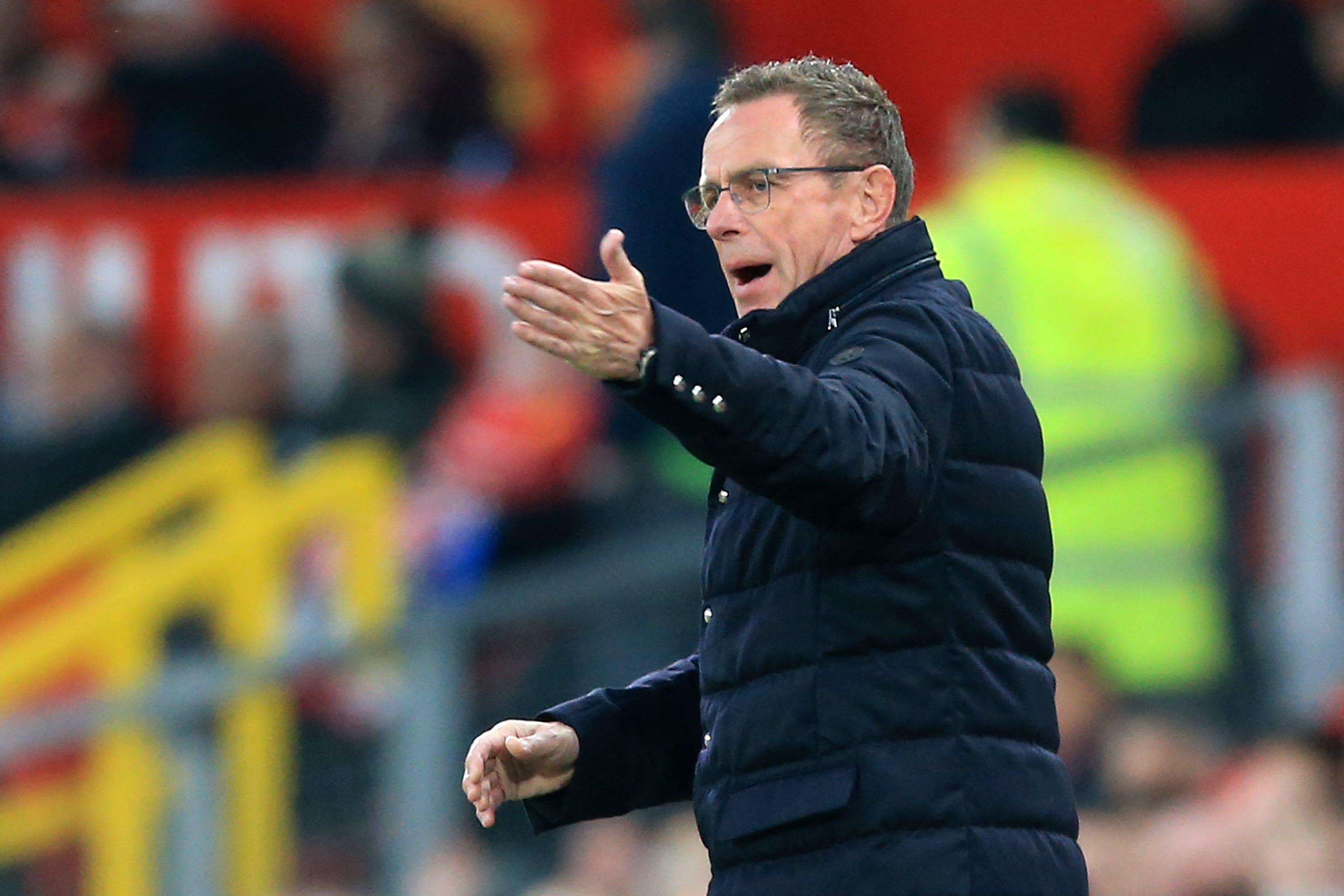
One of the final questions put to Ralf Rangnick during his unveiling back in December related to the nature of his future consultancy role. Would he be allowed to work in different jobs at other organisations over the two-year period?
“We haven’t spoken about that,” he replied. “The club told me that they would want to work with me, not only in the short term but also in at least the medium team. They also want to benefit from my experience and expertise. This would be a question you would have to ask to the board members.”
There was a good deal more clarity on that issue after word spread on Thursday evening of an offer to take charge of the Austrian national team, in the hours before Manchester United’s fortunate 1-1 draw with Chelsea at Old Trafford.
While Rangnick would not speak about the Austria job specifically in his post-match interviews, he confirmed: “I will definitely continue with my consultancy role for the next two years and I very much look forward to that.
“It would leave space for another job, yes, but that is what we had agreed to start with back in November last year.”
There is a clear contradiction there – from not speaking about working in other roles back in November, to that being part of the agreement all along – but it is not an especially surprising one. The fact that Rangnick’s longer-term role was described as a consultancy rather than being given a specific title always suggested that he would be free to work elsewhere.
Rangnick was eventually confirmed as Austria’s new manager on Friday morning. United are understood to be pleased for their interim manager and supportive of him taking up the role, and sources at Old Trafford insist that the agreement with Rangnick was never exclusive. He always had the ability to take on parallel roles.
That was not made entirely explicit upon arrival, though, and the boundaries of his consultancy role still remain vague. Indeed, it was only after news of the offer from Vienna broke that the specific nature of Rangnick’s part-time position began to take shape at all.
When pressed on what his new job at Old Trafford would actually involve, Rangnick finally started to put some meat on the bones of what his responsibilities will be. “For me, the most important bit is recruitment now,” he revealed.
“This is, for me, the most vital point, that we bring in the best possible players and speak about that, who could that be. It is not only identifying those players but meeting them, convincing them to join the club even though we will not be playing in the Champions League. This is what I see as the most important bit.”
Rangnick also suggested that finding the next United academy star will be part of his role. “[It is about] identifying those players,” he added. “We spoke about Mason Greenwood, he was probably one of the most talented players in the last couple of years. This is for me, right now, for the next one or two years, the most important part.”
That is about as full a picture of his consultancy position as Rangnick has publicly offered so far. It may be the fullest picture that he can provide, considering that much of his time in charge as interim has been focused on attempting to get short-term results rather than planning ahead for long-term gains.
Now though, United only have three games remaining. Short-term results are not the priority they were when a top-four finish was still in play. In his round of post-match interviews on Thursday, Rangnick confirmed that there is now agreement about much of the “content” of his consultancy. More detail and clarity before his departure might be necessary.
Some key questions remain: how much of Rangnick’s time will be split between United and the Austria job? Where will he sit within United’s internal structure, or is his role not to be considered part of that structure at all? How will he work alongside John Murtough, Darren Fletcher and most importantly Erik ten Hag?

Whatever the answers are, Rangnick clearly will not play as prominent a role as some fans might have hoped or expected back in November. And having all but failed to secure a top-four finish and a return to the Champions League as manager, it may be that his greatest legacy of all at Old Trafford will not be results either on the pitch or in the transfer market, but his diagnosis of what should happen next.
Performances might have been inconsistent, but Rangnick’s forthright and direct critiques of where United have gone wrong over the years have been anything but. The 63-year-old has regularly laid out what United have to do to get back to the very top, whether that be honing their recruitment process, getting to the bottom of persistent fitness issues, or signing as many as 10 new players in a wider rebuild.
Fixing all of the problems that Rangnick has identified at United over the past five-and-a-half months is a full-time job. Clearly, Austria’s new manager will not be the one to do it. Instead, Rangnick will take up a part-time role that remains one of the more vague, undefined elements of Old Trafford’s latest cultural reset.





